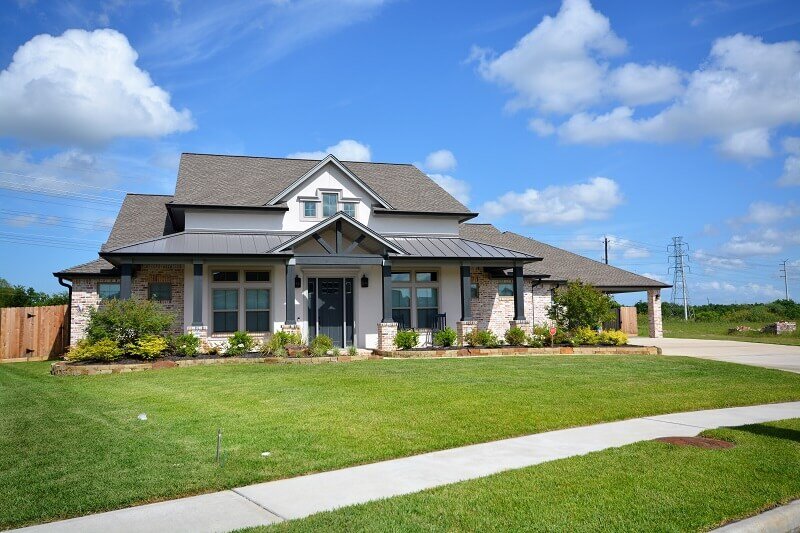
As home prices continue to rise and demand for housing skyrockets, many investors wonder whether to sell their properties.
It can be tempting to consider selling at a time like this. After all, many suggest a housing market dip is on the horizon.
The Covid-19 pandemic witnessed booming growth in the housing market, with record-low mortgage rates and a rapidly dwindling supply of homes. Although many fear an impending crash, the forecast is murky.
Investors, who regularly invest the cost to fix up a house and sell it, are often most affected during real estate market dips, and many are wondering if now is the best time to sell.
This guide contains everything you need to know about selling an investment property during a house market dip—including the cheapest ways to sell a house and how to sell a house fast in Glendale.
If you’re looking to sell an investment property during a house market dip, use this guide or consider contacting cash home buyers in Wisconsin for a quick solution.
Selling an Investment Property
There are many reasons investors may choose to sell a rental property. Investors may wish to move and invest in something closer to home, or they may want to cash in on the appreciation of the house rather than continuing to accrue rental payments.
If your property is losing money or has suffered from depreciation, you are likely eager to get it off your hands. Alternatively, potential buyers may have made you an offer you can’t resist.
Alternatively, you might find yourself observing the seller’s market and wondering if it’s your turn to consider selling rental property. After all, late spring is supposedly the best time to sell.
The current real estate shortage and high demand make it an excellent time to sell. However, if you’re a full-time investor, you’ll likely need to find a new rental home to invest in—and the market is not favorable for home buyers.
Additionally, the Federal Open Market Committee has recently raised interest rates and may continue to do so, and homeowner equity is at an all-time high.
Although selling a rental property in a housing dip may lead to fast cash, it can pose problems down the line. Investors may enjoy the expansion and lock-in interest rates—or struggle to find a stronghold for their investments. Additionally, if you’ve owned the home for a year or less, you won’t benefit from long-term capital gains or enjoy lofty tax deductions.
Consider the IRS policy of depreciation recapture, which claims that an individual cannot claim a tax deduction for an asset and then sell it for profit without paying an income tax to the IRS.
Then, there’s the question of facilitating a home sale—and selling an investment property is no easy task. Depreciation can cut into your real estate investment, costing you to lose money on the purchase price.
From finding a good broker to identifying a new position for your investments, the tasks, and responsibilities associated with selling a rental property are often overwhelming.
The costs associated with the sale of a house can also pose several issues, as real estate agents and tax implications can become expensive. Additionally, you’ll lose the rental income you were earning from the property.
If you’re considering selling your rental property in a housing crash, you’ll want to consider each of these factors ahead of time.
You can make the best choice for your portfolio with the correct information.
Researching the Real Estate Market
The first step in any home sale is researching the real estate market, which can vary depending on where you live.
The current real estate market is unique in several ways.
First, mortgage rates continue to increase, representing 6.66% as of late March. These rates are only expected to continue to rise in the coming months. Mortgage payments are thus relatively expensive, which may deter potential buyers from purchasing your rental property.
According to the National Association of Realtors (NAR), median home prices year-on-year continue to decline, posing issues for sellers.
Ultimately, the market remains a seller’s market, with housing inventory at a record low and buyer demand continuing to rise.
Because of the volatile market, selling your property is likely a uniquely personal decision. While you can look to national statistics and metrics to guide your thinking, you’ll need to examine local market dynamics for more precise information.
Historically, the best time to sell a home has been mid-April, and investors benefit from selling when interest rates are low, as it entices more buyers into the market. Additionally, housing shortages can make it ideal for investors to sell, as a lack of available houses can drive up the price.
Selling before or during a market dip is an appealing prospect to many. Still, experts recommend exercising caution since you might find yourself paying exorbitant closing costs and needing help finding new renters for your next property.
Ultimately, the best time to sell your home is when the need arises—whether for personal or financial reasons.
Need To Sell Your House Fast?
We make selling your house a simple affair.
Just fill out the form below or give us a call at: (414) 488-0082 to get your free, no-obligation cash offer!
Making Necessary Repairs and Renovations to Your House
If you plan to sell your home during the housing dip, you’ll need to make all necessary repairs and renovations to increase equity and make your sale more profitable.
Introducing repairs can increase the purchase price and reduce depreciation, allowing you to boost cash flow from the sale.
Several different types of upgrades can dramatically increase your home value. For example, many investors choose to repair floors or replace carpeting with hardwood. You can also address any water stains, mold or lead issues, or piping in your home before selling it.
Repairing torn window screens and updating grout add to your home’s aesthetic, and you can hire landscapers to introduce curb appeal to your rental property.
Lastly, many people choose to repaint the walls and add a new roof to increase the market value of their properties.
Ultimately, repairs can go a long way toward selling a rental property, and upgrades are often worth the investment.
Calculating Potential Profit from House Sale
Before selling a rental property, you’ll need to calculate the potential profit you’ll earn from doing and determine tax implications.
For example, if you have owned the house for over a year, you’ll enjoy long-term capital gains on your tax return. Alternatively, if you hold it for a lesser amount of time, you’ll incur a short-term capital gain.
To calculate your profits, you’ll need to estimate the home sale price and subtract all your other costs. If you owe capital gains taxes, you’ll have to adjust your expected gains. Your tax rate will vary considerably, so be sure to do your research. If you move into a new tax bracket, you might find yourself facing higher taxes than ever. Remember that if the home is your primary residence and a single-family home, you may not need to pay capital gains taxes.
After the sale, add the purchase price to the amount on your tax return to determine your overall profits.
To make the most out of your home sale, consider working with professional cash home buyers—we buy houses in Milwaukee.
Calculating Potential Fees and Costs
There are many fees and costs associated with the sale of a house.
First, you’ll need to consider the real estate commission for both real estate agents. The commission is typically split between buyer and seller, but you can avoid this by using for-sale-by-owner (FSBO) properties.
Then, consider certain unavoidable expenses associated with a sale, including closing costs, which sellers are expected to pay, HOA fees, and mortgage payoffs (if you still owe money on your mortgage).
You’ll also need to determine the tax implications of your sale, including whether you owe capital gains taxes.
Other tax implications are associated with a home sale, including property and transfer taxes. If your home has suffered from depreciation, you may lose money.
The IRS policy of depreciation recapture may impact your costs. If you claim a depreciation deduction for your property and then sell it at a profit, you will owe a given amount on your subsequent income tax.
Lastly, some other potential fees and costs are voluntary, including seller concessions and escrow fees. Consider hiring a home inspector to determine whether you have any disclosures that need to be made. A home inspector will also help determine whether you need to make any renovations to the property.
Home staging is also a standard cost at this stage, so consider this before creating your budget.

Conclusion
Selling your investment property is a uniquely personal choice.
From capital gains taxes to fees associated with your sale, there are many factors you’ll need to consider.
Ultimately, there are better times to sell than a housing dip if you plan to remain in rental property investing. If you want to make a cash grab and go, go for it.
Remember to consider all of your costs and profits and consider opting for a cash sale to maximize your earnings.
